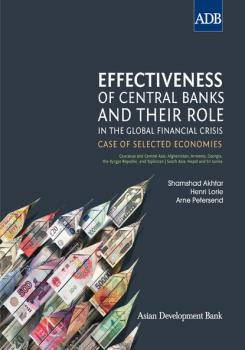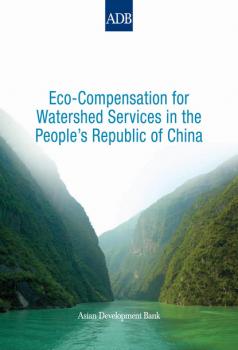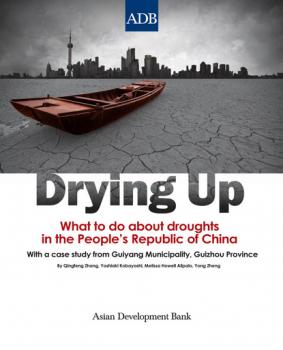MREADZ.COM - много разных книг на любой вкус
Скачивание или чтение онлайн электронных книг.Enhancing Financial Disclosure Standards in Transitional Economies II
Public and private investors want timely, accurate financial information about institutions before investing. This requires adherence to internationally accepted financial disclosure standards. However, implementing these standards is a particular challenge for economies in transition from the Soviet-era central planning approach toward a market economy. The Asian Development Bank provided a technical assistance grant (TA 6505- REG) to build capacity to enhance financial disclosure standards in Armenia, Azerbaijan, and Georgia. The book is a compendium of the project's findings, activities, results, and recommendations. It discusses the rationale for the adoption of International Financial Reporting Standards and the enforcement of International Standards on Auditing by legal entities, and explores their use by small and medium-sized enterprises in the three countries. The book is a valuable guide to accountants, auditors, financial institutions, regulators, investors, governments, researchers, and others interested in financial disclosure practices and progress of these transitional nations.
Energy Trade in South Asia
The South Asia Regional Energy Study was completed as an important component of the technical assistance project Preparing the Energy Sector Dialogue and South Asian Association for Regional Cooperation Energy Center Capacity Development. It involved examining regional energy trade opportunities among all the member states of the South Asian Association for Regional Cooperation. The study provides interventions to improve regional energy cooperation in different timescales, including specific infrastructure projects which can be implemented during these periods.
Effectiveness of Central Banks and Their Role in the Global Financial Crisis
This study examines the role and performance of central banks in low-income countries that have faced a range of domestic and external fragilities, aggravated by the global financial crisis that started in the United States and other advanced economies. It focuses on a select group of developing member countries of the Asian Development Bank in the Caucasus, Central Asia, and South Asia that have been and will continue to be vulnerable to adverse external developments.
Economics of Reducing Greenhouse Gas Emissions in South Asia
Against a backdrop of increasing emission of greenhouse gases (GHGs) that are responsible for global climate change, the South Asia developing member countries (DMCs) of the Asian Development Bank have been witnessing a steady rise in fossil fuels and energy consumption and demand, keeping pace with their economic growth. The region's major challenge is how to achieve sustained and rapid economic growth for reducing poverty while reducing the overall intensity of energy use, increasing energy efficiency, and substituting to cleaner energy. This report synthesizes the results of national studies on options and costs of reducing GHG emissions in five South Asia DMCs–Bangladesh, Bhutan, the Maldives, Nepal, and Sri Lanka. It examines the economics of cleaner technologies that promote low-carbon development and climate change mitigation, identifies constraints and barriers that reduce incentives to invest in GHG emission-reducing technologies, and recommends actions and enabling conditions to overcome the barriers.
Economics of Climate Change in East Asia
This regional study includes the People's Republic of China, Japan, the Republic of Korea, and Mongolia and examines how strategies for adapting to climate change up to 2050 can be combined with measures to reduce greenhouse gas emissions in East Asia. Besides discussing climate model results for costs of adaptation in infrastructure, coastal protection, and agriculture, the study estimates costs for sector-specific mitigation options and the total abatement potential for 2020 and 2030. Long-term strategies for addressing the impacts of climate change in East Asia are explored with a focus on the linkages between adaptation and mitigation taking account uncertainty about key climate variables. Finally, it discusses opportunities for enhancing the effectiveness of some critical climate change policies such as regional carbon market.
Eco-Compensation for Watershed Services in the People's Republic of China
The People's Republic of China (PRC) is seeking new approaches to improve water management outcomes in the face of a growing water crisis caused by ongoing pollution control and watershed management challenges. This has included numerous experiments in «eco-compensation» (which shares characteristics with payments for ecological services). This paper details progress in creating a national eco-compensation ordinance and discusses the ongoing institutional challenges in its effective development. Water is possibly the single most-pressing resource bottleneck of economic growth for the PRC over the medium term. As such, the degree to which such initiatives are ultimately successful is not only critical for the PRC but also has major ramifications for global food, fuel, and commodity markets and production chains.
Earnings and Quality of Female Labor in the Border Areas of Viet Nam and Implications for Greater Mekong Subregion Cooperation
This series features the scholarly works supported by the Phnom Penh Plan for Development Management, a region-wide capacity building program of the Asian Development Bank that supports knowledge products and services. It seeks to disseminate research results to a wider audience so that policy makers, implementers, and other stakeholders in the Greater Mekong Subregion can better appreciate and understand the breadth and depth of the region's development challenges.
Dryland Ecosystems
The People's Republic of China (PRC) suffers from some large-scale land degradation problems, posing a significant threat to the lives of local residents and to the future economic welfare of the nation. The dryland areas of the western PRC, which cover approximately 40% of the country's land area, contain some of the most severely degraded land in the world. With only about 7% of the world's farmland and 6% of the world's annual water runoff, the PRC must feed 22% of the world's population. With the assistance of the Global Environment Facility (GEF) and the Asian Development Bank, the PRC government established the PRC-GEF Partnership on Land Degradation in Dryland Ecosystems to address land degradation issues, reduce poverty, restore dryland ecosystems, and conserve biodiversity through an effective integrated ecosystem management (IEM) approach.
Drying Up
Climate change is one of a few major factors that ensure the country will continue to struggle to supply its cities and industries and fields with enough water, particularly in the North, as well as face more frequent and longer droughts. The country has shown a stunningly agile disaster response system, but its system for disaster prevention and management is far less developed. The road to greater drought management and sustainable water supplies is demand management. How to achieve this in a historically hydraulic-engineering society is explored through the case study of Guiyang Municipality in Guizhou Province.
Deepening Economic Cooperation between India and Sri Lanka
This book analyzes the performance and impact of the India–Sri Lanka free trade agreement over the past decade and suggests the way forward. India became an important source of imports for Sri Lanka immediately after the implementation of the free trade agreement. Bilateral trade between the countries increased steadily thereafter, with Sri Lankan commodities finding a large market in India. The composition of trade also changed with an increased number of new goods being traded. The book computes indices and suggests scope for deepening economic cooperation between the two countries by pruning the negative lists for trade in goods, identifying potential investment, and suggesting policies for expanding cooperation in services.









